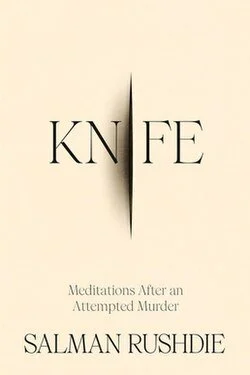The Satanic Verses is one of those books more famous for the events surrounding it than for the text itself. I don’t have much to say about that side of things, as I think the events of the fatwa are pretty well known. What I didn’t know was what exactly it was about the book that aroused such ire. Having now read the whole thing, my impression is that Rushdie touched a nerve primarily by writing about Muhammed (or Mahound as he’s rendered in the book, which was apparently insulting as well) as a man with vested interests in his own divine inspiration, and by expressing ambiguity regarding the truth of his revelations. Yet while these discussions could potentially insult muslim readers, there is nothing in the book overtly designed to offend, and, as is the case with most controversial books, the controversy likely arose mostly from people who had never read the book and had only the roughest, least charitable impression of what was in it. So it goes.
The book is all over the place in the usual Rushdie style, but the story, insofar as it sticks ot one, revolves around two Indian citizens of muslim backgrounds, Gibreel Farishta and Saladin Chamcha, who miraculously survive an explosion in an airplane over London and are imbued by divine and infernal avatars, respectively. Gibreel adopts the holy visions of his angelic namesake, while Saladin grows the horns and cloven hoofs of a demon. Having described these startling events, the narrative promptly swerves in a dozen other directions, leaping backwards to the founding of Islam or describing a bizarre pilgrimage to the Arabian Sea led by a prophetic young girl clad in butterflies. Rich images abound, plot is thin on the ground, and diversion are plentiful. Things do eventually swing back around to Saladin and Gibreel, but never in the way you expect (Saladin’s cursed form disappears abruptly with little explanation and never bothers him again).
Rushdie’s prose is verbose and playful, full of puns and references and crackling images. It can be a little much at times, but his gift for language is indisputable, and he’s a lot of fun to read when he’s not exhausting you with 26 zigzagging sub-clauses in a row.
Having read only this and Midnight’s Children, I can’t claim to be a Rushdie scholar. However, there are clear parallels between the two books that suggest possible preoccupations common to his work: the entwining of the supernatural and the mundane; a deep drawing on history, particularly that of his country and his faith; main characters endowed by circumstances with powers that are both blessing and curse; a twinning of protagonist and antagonist.
There is also something about the way he writes women that struck me in both books. He by no means falls into the typical traps of lesser male authors writing women. They are neither passive objects of rescue nor empty vessels of desire. They are strong and capable, but also strangely cold. They seem less human than deity, and imbued with a cruelty that is not mortal but divine. It’s not a personal, vicious cruelty, but a sort of dry pitilessness. They seem always composed, never weak or vulnerable, and the violence men try to visit upon them is as pointless as fists on stone. There are certainly exceptions to this—most notably Alleluia Cone—and you could point to moments that contradict this impression for most of his other female characters as well. The general impression, however, remains. His women seem just a little farther removed from the reader than his men.


